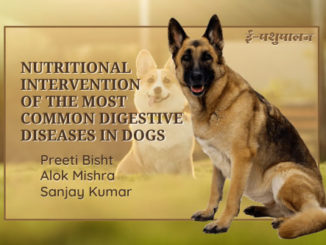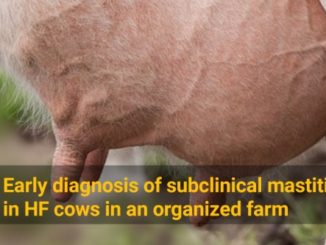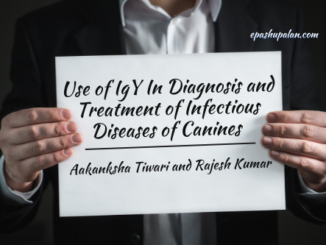With the passage of time, humans have evolved and so have the B species. Dogs have found themselves in a plethora of roles viz. wild animals, hunter animals, pet animals and now companion animal, rather they are considered at times a family member. Humans find it difficult to resist their wagging tails and nudging nose. These canine friends share our hearts and home and then it is imperative for us to think that every delicious food that we eat should be shared by them too.
Well, this thought is not always right as there are many foods that may prove dangerous to our beloved friends. They often suffer from common intestinal disturbances and indigestion, if oily and fatty foods are provided to them. So, it is a matter of utmost importance to understand what to and what not to feed our dogs, if we want them to lead a happy and healthy life. Below is a list of some food stuff which is unsuitable for dogs:
- Alcohol: According to American Society for the Prevention of Cruelty to Animals (ASPCA) – “Under no circumstances, should your pet be given any alcohol”. Only a small amount of alcohol can act as a poisonous beverage to dogs. The effect of alcohol on dog’s liver and brain is same as that of human beings but as dogs are highly susceptible to alcohol poisoning, the effects are shown by a very less quantity and in a very less time in these animals. The younger the dogs, the more severely are they affected. The signs of alcohol poisoning may be digestive disturbances like vomition, diarrhea and general signs like elevated body temperature, restlessness, excessive panting and disorientation. In worst cases, it may lead to in coordination, weak breathing, muscle tremors, seizures, coma and even death.
- Chocolates and Caffeine: Chocolate should never be given to dogs. It has been found that it contains a stimulant called theobromine which is poisonous to dogs. The amount of theobromine depends on the type of chocolate. The darker the chocolate is (for instance, baker’s chocolate or cocoa powder), the more dangerous it is as they contain a higher concentration of caffeine and theobromine, both of which cause toxicosis in dogs. Theobromine mainly affects the guts, heart, central nervous system and kidneys and signs of theobromine poisoning occur around 4-24 hours after the dog has eaten chocolate. According to ASPCA, methylxanthines if ingested by pets can cause vomition, diarrhea, panting, excessive thirst and urination, hyperactivity, abnormal heart rhythm, tremors, seizures and even death. In fact, darker chocolate is more dangerous than milk chocolate. White chocolate contains the lowest level of methylxanthines, while baking chocolate has the highest.” Similarly, caffeine like chocolates is also a stimulant and dogs seem to be more sensitive to it than humans. Signs of caffeine poisoning are same as that of chocolate poisoning.
- Grapes and raisins: Although the toxic principle of grapes and raisins have not yet been identified but it has been identified that the dogs, which are sensitive have higher chance of developing long term kidney disease or may even die from kidney failure soon. The symptoms like vomition, dehydration, lethargy, diarrhea, decreased appetite, polyuria followed by oligouria can be seen within 12 hours of ingestion.
- Xylitol: It is an artificial sweetener found in many sugarless gums and candies, certain household products like toothpaste and mouthwash. It is known to cause insulin release in certain species, leading to liver failure as there is hypoglycemia due to the increase in the hormone. Early signs of toxicosis may be mild like vomition, lethargy and loss of coordination thereby resulting in seizures within a few minutes to few hours of ingestion. After a few days, elevation in liver enzymes can be seen and finally liver failure. The effect of xylitol poisoning is rarely dose related. Thus, even a small amount may prove lethal to the dogs.
- Onion and Garlic: They contain disulfides and sulphoxides (thiosulphates) which are known to cause Heinz body anaemia to the dogs. Garlic is considered more potent than onion in doing the damage. Signs of toxicosis appear late and include lethargy, weakness, gastroenteritis and orange to dark red coloured urine. Japanese breeds of dogs i.e Akita and Shiba Inu are said to be more sensitive.
- Avocados: Ripened fruit seem to be less toxic to dogs. Unrippened avocado contains persin which can cause stomach upsets in dogs along with heart congestion. The pit contains a high amount of persin and can cause severe hazard.
- Milk, ice creams and other Dairy products: Dogs do not possess the ability to break milk sugar (lactose) as they lack the necessary enzyme, lactase. It may cause diarrhea and gastro intestinal upsets and may also cause food allergy to the dogs. Ice creams on the other hand contain a higher amount of sugar and fat content which can lead to pancreatitis in dogs.
- Macadamia nuts: These are a part of Protaceae family and are known to cause weakness, depression, lethargy, elevation in body temperature and vomition. The worst cases show nervous signs like muscle tremor and weakness of hind limbs in particular. The signs of poisoning appear as early as 12 hours after ingestion and last for upto 48 hours.
- Bones and Fat trimmings: Dogs can choke on bones. Pieces of bones in intestine may also cause intestinal obstruction and cause cuts in the dog’s digestive system. Fat trimmings are a potent cause of pancreatitis in dogs and thus should be avoided.
- Raw meat and eggs: Raw egg contains the well known antagonist of Biotin (vitamin) called as Avidin which can lead to deficiency of this vitamin causing skin coat problems. Also, raw eggs and meat are potent carriers of bacteria like Salmonella and E. coli which cause severe gastro intestinal disturbances to animals as well as humans.
- Salt: Processed and value added products like chips and salted popcorns contain excess amount of salt and when ingested may lead to excessive thirst and urination in dogs. If the amount ingested is high then it causes an abrupt rise in sodium ion concentration in blood leading to vomition, tremors, seizures and even death due to salt poisoning.
- Sugar: Ingestion of sugars like excessive salt has a negative impact on dogs. High sugar diet can lead to obesity and dental problems at the outset and even diabetes in later stages.
- Yeast dough: On ingestion, yeast dough leads to accumulation on gas in the stomach and thereby leads to abdominal expansion. Fermentation leads to production of ethanol, so signs like alcohol poisoning may be evident. This causes a lot of pain to the dogs and may even lead to death.
- Blue Cheese: Cheese, like other dairy products is difficult to be broken down in the dog’s digestive system. Blue cheeses like Stilton and Roquefort are particularly dangerous. Roquefortine C is a substance found in many of those which causes vomition, diarrhea and in large doses may lead to nervous signs like tremors and seizures.
Thus, let’s avoid feeding our pets with what we love, instead feed them with what we ought to.






Be the first to comment